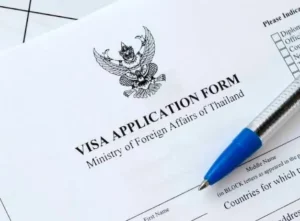The vibrant tapestry of commerce in Thailand thrives on intricate agreements binding parties to their contractual promises. Navigating contract disputes requires a comprehensive understanding of the legal landscape, types of breach and available remedies.
Damages involve monetary compensation aimed at covering financial losses incurred as a direct result of the breach. Sometimes contracts stipulate pre-agreed liquidated damages avoiding lengthy litigation over determining actual losses.
Rescission
Contracts provide a fundamental structure for parties to delineate their rights and responsibilities, forming the backbone of all business transactions and relationships. A breach of contract is a serious matter that raises a host of legal ramifications.
It is important for involved parties to have a comprehensive understanding of the various categories of contract breaches and the methods by which disputes are resolved. This article explores the issue of breach of contract in Thailand, shedding light on its legal perspective, prevalent forms of violations, and the available redress for non-breaching parties.
The most common remedy for breach of contract in Thailand is damages. These are monetary awards intended to compensate the non-breaching party for losses resulting from the breach. However, a non-breaching party may also seek specific performance, in which case the court will order the breaching party to fulfil their contractual obligations.
In some cases, a breach of contract may be deemed so serious that it warrants the revocation of the entire agreement. In this situation, the innocent party can claim the amount ruled by the court as liquidated damages, which is a pre-agreed figure that prevents prolonged litigation over determining actual losses.
Clear contracts, thorough legal reviews, and effective communication are essential for a well-functioning commercial environment. But, even the most diligent companies can run into contractual disputes. When such issues arise, swift and informed action coupled with the support of an experienced law firm can transform a discordant melody into a harmonious resolution.
Damages
Contracts weave the fabric of commerce in Thailand binding parties to their mutual obligations and fostering trust in agreements. However, misunderstandings and disagreements can result in breach of contract. Navigating contract disputes requires an understanding of the legal landscape, types of breach, and available remedies. Often, a demand letter can suffice, but in more severe cases, it may be necessary to seek legal action involving Thai courts.
Legal remedies for contract breaches include damages, specific performance, and rescission. Damages involve monetary compensation to cover the financial losses of the non-breaching party, with an aim to return them to their position had the breach not occurred. Liquidated damages, which are pre-agreed amounts specified in contracts, are also common and can reduce the risk of ambiguity and lengthy litigation over the amount of loss. Punitive damages are very rare in Thailand, but can be awarded if the breach was particularly egregious.
A well-functioning commercial climate in Thailand depends on clear contracts, frequent legal reviews, and proactive communication. Nevertheless, even the most careful business partners can find themselves in contract disputes. Prompt action and the guidance of experienced legal professionals can turn a discordant melody into a harmonious resolution, restoring balance to Thailand’s vibrant tapestry of commerce.
Specific Performance
The right to specific performance under a contract allows the non-breaching party to compel the breaching party to fulfill their contractual obligations under a different arrangement. This remedy is typically available when damages are not sufficient compensation for the breaching party’s failure to perform their obligations.
In Thai law, a contract is defined as a juristic act that establishes, modifies, transfers, preserves, or extinguishes rights and creates mutual legal obligations among parties. To avoid voiding a contract, the declaration of intention must be clear without mistakes on the essential elements of the juristic act (Section 149 CCC).
Under Thai contract law, contracts can be either express or implied. Express terms are those explicitly set out in a contract, while implicit terms are read into the contract through the words and deeds of the parties. According to Mindy Chen-Wishart, ‘a contract in writing is considered to be an express term while one in oral form may be an implied term.
In addition to the above, a contract is void if it violates public order or good Thai morals and if it is impossible to execute. However, deviations from laws unrelated to public order or morals are not considered a violation of public order or morals and do not automatically render the contract void. Likewise, a contract may also be deemed void if it does not follow the prescribed legal form (Sections 150-151, TCCC). In the case of a void contract, neither party is entitled to any compensation or rights under the agreement.
Litigation
Contracts weave the fabric of commerce in Thailand binding parties to their mutual obligations and fostering trust in agreements. When those agreements are breached, it creates serious problems for both businesses and individuals. Understanding the legal framework, types of breaches, and available remedies is essential to both preventing and addressing these issues effectively.
In order to bring a lawsuit under a contract, the aggrieved party must have a valid and enforceable agreement with clear terms, a breach by the other party, and actual damages. Actual damages involve monetary compensation for a loss that is directly linked to the breach and can include general, consequential, or stipulated or liquidated damages. Stipulated or liquidated damages are an agreed-upon amount established at the time of contract entry and are typically aligned with what the court would consider reasonable under Thai law.
A competent law firm can often help clients avoid a lengthy and expensive court battle by implementing alternative Thailand dispute resolution (ADR) methods. However, if those attempts are unsuccessful, the law firm must be ready to support their clients in litigating civil actions under their contracts inside Thailand’s courts. This includes matters related to labor and employment agreements, real estate agreements, loan agreements, and infringements. These cases tend to be complex, taking a significant amount of time to resolve. As such, it is critical to work with a firm that has a track record of successfully assisting their clients with these types of contractual disputes.










